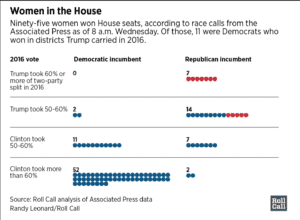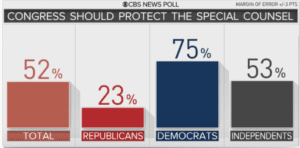On December 21st, President Trump signed the FIRST STEP Act of 2018 into law. In addition to being a notable act of bipartisanship, the act will have far reaching implications for the nation’s criminal justice system and will have meaningful impacts on the lives of incarcerated people.
The bill, whose title is an acronym for Formerly Incarcerated Reenter Society Transformed Safely Transitioning Every Person, is intended to somewhat reduce prison sentences for non-violent offenders, and to promote programs aimed at reducing recidivism rates. (Recidivism is the tendency to again commit the same or related crimes after being released from prison.)
For a brief history of the Act and of related efforts, see this article in The New Yorker: The Improbable Success of a Criminal-Justice-Reform Bill Under Trump
Summary of the Act:
- Sentencing Reduction: Reduces the mandatory minimum sentences for drug-related crimes and for repeat offenders. Reduces the federal sentencing guidelines (which are considered during sentencing, but which do not determine sentence length).
- Change in mandatory minimum policy: In addition to reducing mandatory minimums for non-violent offenders, the bill also establishes mandatory minimums for violent offenses.
- Recidivism reduction: The bill expands the amount of credits that inmates can receive for successfully participating in recidivism reduction programs such as counseling and education.
- Prisoner Treatment: The bill includes provisions that address how inmates are treated in federal prisons; for example, the bill prohibits the use of restraints on pregnant inmates except in certain situations.
Read the full text of S. 756, the FIRST STEP Act of 2018.
Since the passage of the bill, most public opinion has been positive. Much media coverage focused on the process and the fact that something passed with bipartisan support. It has been taken as evidence that there is still the possibility of compromise and cooperation between Republicans and Democrats. Less attention has been paid, at least so far, to the effects of the bill and to the question of whether or not this was a good bill. Some questions to discuss with your students include:
- Do you support reducing prison sentences for drug offenders? Why or why not?
- What do you think are the most important goals of placing criminals in prison?: To protect the public? To punish the criminal? To convince others not to commit crime? To rehabilitate people so that they can reenter society? Something else?
- Do you think that this bill went far enough? Why or why not?
- To what extent do you think racial disparities and racial bias in the criminal justice system is an important issue?
Some resources to help students and teachers discuss these and other pressing questions include:
- From vox.com, an argument that the FIRST STEP Act did not go far enough: The Senate’s criminal justice reform bill is not an “overhaul.” It’s a first step.
- From fortune.com, an argument that the FIRST STEP Act did not go far enough: Trump Signed the First Step Act for Criminal Justice Reform. Here’s the Second Step.
- From the Los Angeles Times, an argument that state governments need to take action: The feds just passed criminal justice reform. Here’s why state-level efforts matter more.
- From The Washington Post, via the Charleston Gazette-Mail, an editorial praising the bill as passed: Guest editorial: The First Step Act will offer a fairer deal to inmates (Gazette opinion)
- From The Weekly Standard, a conservative argument against the FIRST STEP Act: The Missteps of the First Step Act.
- From The Intelligencer, a project of New Yorkmagazine, a progressive argument against the FIRST STEP Act: The First Step Act Deserves Your Skepticism.
Sources:
Featured Image: Southern Coalition for Social Justice









